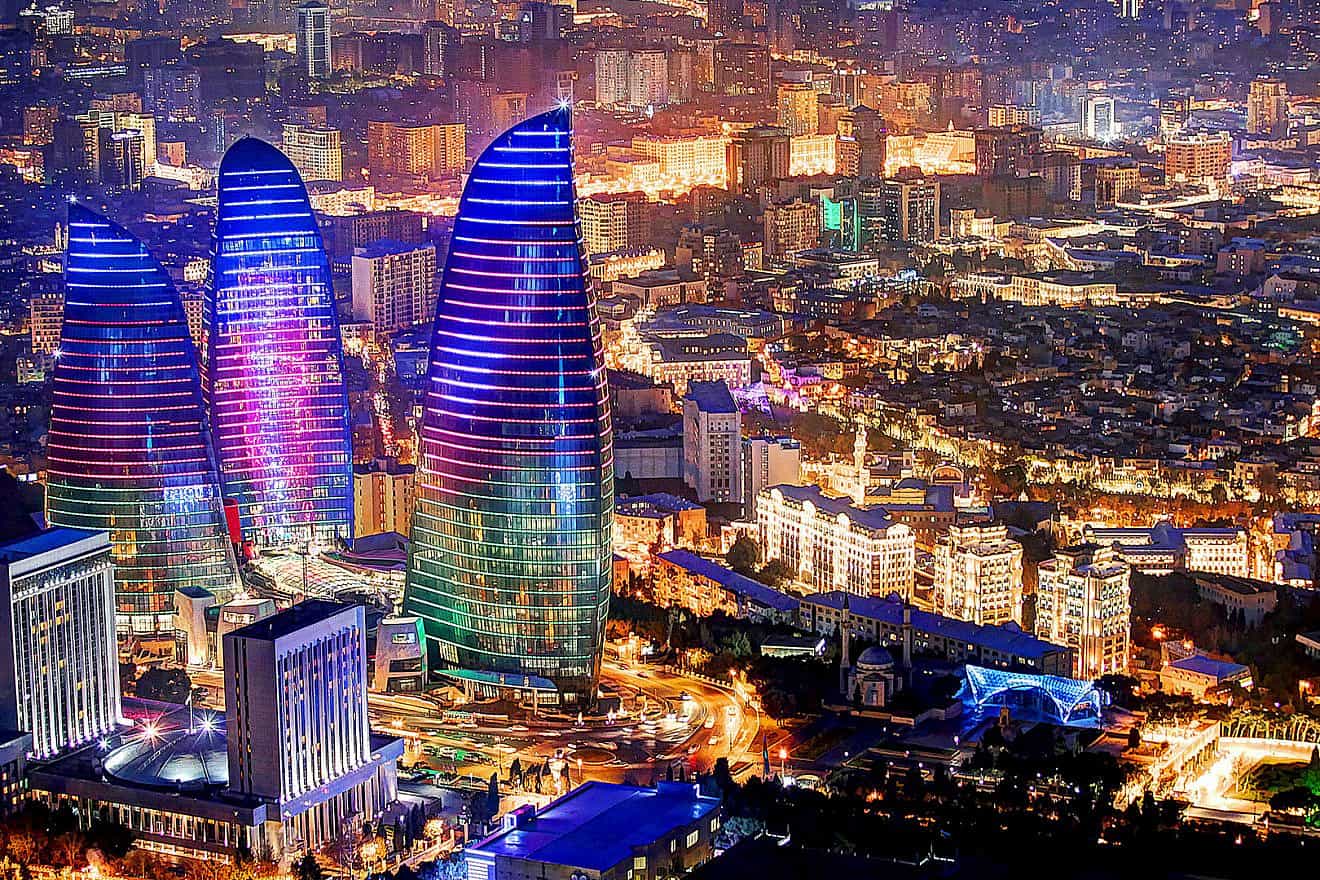A conference of European rabbis that will be held in Azerbaijan next month has sparked a divisive debate among European Jewish student groups and Azerbaijani Jewish leadership over the venue due to the recent developments in the Caucasus.
The divisions within the Jewish community over holding the biennial convention of the Conference of European Rabbis (CER) in Baku, in the first such gathering in a Muslim nation, follow the developments in Nagorno-Karabakh. The breakaway Azerbaijani region, which until recently was populated by Armenians, is now depopulated and under complete Azerbaijani control following a lightning military offensive.
“It is with great concern that we raise the question of whether it is ethical and moral for leaders of our Jewish communities to organize and attend this event in Baku, Azerbaijan, amidst such a challenging and controversial geopolitical context,” reads a Sept. 22 letter from the Brussels-based European Union of Jewish Students to the leadership of the Conference of European Rabbis.
The public letter, which expressed “unwavering support with the ethnic Armenians,” over 100,000 of whom have relocated to Armenia, called to relocate the conference.
“Our Jewish values call upon us to stand in solidarity with those facing adversity and to continue advocating for the protection of human rights whenever and wherever they are violated,” the letter, signed by European Union of Jewish Students president Emma Hallali and supported by eight national Jewish student union groups, concludes.
Azerbaijani Jews not consulted
The leaders of the Jewish community in Azerbaijan condemned the letter.
“We must admit our utter surprise at your chosen subject and convenient omission of certain facts,” their Sept. 28 response read. “Strangely, you did not ask us [about it], the Jews of Azerbaijan, the people who have lived here for more than a thousand years in peace and friendship with Azerbaijanis, who consider us brothers.
“We are calling on the European Union of Jewish Students to participate in a dialogue to discuss regional matters without propagandistic narratives, which have nothing in common with the reality,” the response concludes.
The rebuttal letter was signed by Milikh Yevdayev, the chairman of the Mountain Jewish Community of Azerbaijan; Alexander Sharovsky, the chairman of the Azhkenazi Jewish Community of Azerbaijan; Zamir Isayev, the chairman of the Georgian Jewish Community, Shaul Davidov, the director of the STMEGI-Azerbaijan Foundation of Mountain Jews; and Boris Mushailov, the director of Hillel Azerbaijan.
Similar letters of support for the conference in Baku were sent by the Canadian Foundation for the Education and Welfare of Jews in the CIS, the New York-based Vaad L’Hatzolas Nidchei Yisroel and Hillel of Central Asia and Southeastern Europe.
“There is an accepted rule within the Jewish community that organizations consult with local communities before publishing letters or statements,” the Conference of European Rabbis President Rabbi Pinchas Goldschmidt told JNS on Tuesday. “It seems that EUJS has not reached out to the Jewish community in Azerbaijan.”
Landmark event
The Conference of European Rabbis’ convention, which is expected to be attended by over 500 participants, is scheduled to take place in Baku on Nov. 12-15, at the invitation of Azerbaijan President Ilham Aliyev, who will serve as the honorary host.
The primary Orthodox rabbinical alliance in Europe, the organization unites more than 700 religious leaders from communities across the continent. Founded in 1956, it works to defend the rights of Jews, with freedom of religion and matters related to the Jewish communities expected to be front and center at the conference.
The event also comes amid thriving relations between Israel and Azerbaijan.
The selection of secular Shi’ite Muslim Azerbaijan as the venue is also highly symbolic.
At a time of heightened antisemitism across the globe, Azerbaijan is considered free of such animus with the country’s 30,000 Jews living in harmony with their Muslim neighbors.
Historically, Azerbaijan has been home to three distinct Jewish communities: European Jews, who settled in the area during the late 19th to early 20th centuries, and during World War II; Jews from the former Soviet Republic of Georgia, who settled mainly in Baku during the early part of the 20th century; and Mountain Jews, the largest and most veteran group.
The conference will include a visit to the historic Jewish town of Quba, which was home to Mountain Jews for centuries.


























